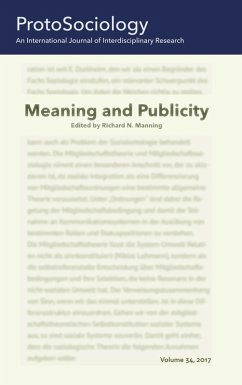The papers collected in this volume all discuss the ways and extent to which the determinants of meaning must be public. In the philosophy of language there are currently two main traditions concerning the relationship between meaning and public phenomena. According to one tradition language is public in principle, so that there can be nothing to the meaning of linguistic expressions that cannot be accounted for in terms of the behaviour in context of linguistic subjects. According to the other tradition linguistic meaning is determined by the content of the mental representations that are expressed in overt speech acts. On such views, the properties of the mental are prior to language and linguistic meaning should be explained by appeal to mental concepts. There divergent traditions leave us with a question: Is linguistic meaning to be explained on the basis of a pre-linguistic biological or mental capacity which "goes public " in overt speech, or is it to be explained on the basis of pubic behaviour in context which "goes private "in thought, and which determines the contents of the mental?
Dieser Download kann aus rechtlichen Gründen nur mit Rechnungsadresse in A, B, BG, CY, CZ, D, DK, EW, E, FIN, F, GR, H, IRL, I, LT, L, LR, M, NL, PL, P, R, S, SLO, SK ausgeliefert werden.









